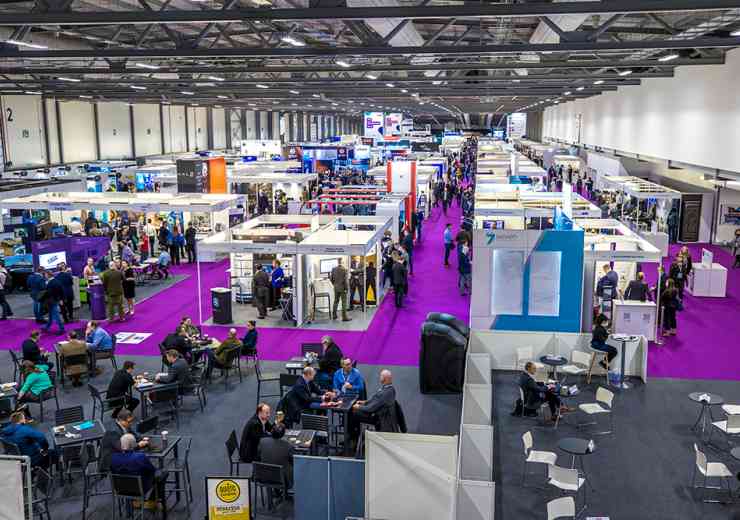National threat levels and you
 So what do the national threat levels mean to you? Do you know anything about them, or are they just something you read about in time of emergency? Really though, how much does your business understand the UK terrorism threat levels? What plans have you got should the threat level go up or down? If anecdotal evidence is to be believed, most businesses have no idea. This can be costly and very risky.
So what do the national threat levels mean to you? Do you know anything about them, or are they just something you read about in time of emergency? Really though, how much does your business understand the UK terrorism threat levels? What plans have you got should the threat level go up or down? If anecdotal evidence is to be believed, most businesses have no idea. This can be costly and very risky.
I found it interesting recently to be confronted by three fully armed police officers – with machine guns – patrolling one of our London train stations. We’re used to seeing this type of patrol at airports but it was surprising to see what appeared to be paramilitary police officers working in close formation across the concourse of Euston Station.
Heightened threat
Such patrolling may be needed in times of heightened threat but we are currently in a situation where the terrorism threat level is judged by the Joint Terrorism Analysis Centre (JTAC) to be at moderate inside the United Kingdom. This is good news and is pretty low in comparison to much of the past 10 years when it has hovered between substantial and severe for most of the time.
Having a terrorism threat level so high for so long has produced the effect of raising the levels of the normal. It would be interesting to conduct a survey to gauge how many people view machine-gun-toting police as reassuring or proportionate in the present security situation.
I think we are all in agreement that there is a need for firearms officers in the background, ready to respond at short notice. The terrible incident earlier this year in Woolwich required that response, and an excellent job those officers did, too. But I don’t believe we are ready for, or even want, regular armed foot patrols – either in a train station or on the high street. My guess is that it raises fear levels when a single unarmed officer in a Bobbie’s helmet would help reassure the public that things are as normal.
And where do we go from here? If this is the type of policing at train stations when the threat level is at moderate, what can we expect should the threat levels increase to substantial, severe or critical? Maybe machine gun posts behind sandbags at the doors, as I witnessed recently in Pakistan? Heaven forbid.
Those of us who were aware of the policing arrangements after the terror attacks in 2005 will be aware that the British Transport Police (BTP) didn’t have a firearms section at that time, and had to request assistance from Home Office forces to carry out armed patrols. This situation has clearly changed and I fear that now the BTP have the resources, they feel the need to use them even when there is no good reason. Who has made the decision to carry out routine firearms foot patrolling at train stations?
This, of course, has much wider implications for policing in the UK. We proudly hold on to our unarmed police forces and, time and again, the public and officers themselves refuse to go down the ‘permanently armed’ route. Long may that continue.
Business plan
So, let’s bring this into the world of commerce. Does your business actually have adaptable plans which alter in the light of the threat to your people, assets, information and reputation? If you have, how do you decide to implement them and, crucially, how do you decide to come back down to a normal state when the threat decreases? If you have the specialist services, the extra guards, the spanking new bits of unwieldy kit and layers of security in place around your assets, how do you decide to put them back in the cupboard?
It’s all about planning. Most businesses, especially those in the centre of cities, have plans, such as the kind which have been agreed at some stage in the distant past, and may get watered down with use and budget reductions. We all know that security is one of the first areas to feel the economic downturn (arguably it should be the last but that’s for a different debate).
But how many businesses have really thought of their actions should a major emergency strike? What if they get a visit from counter terrorism officers telling them they may be the target of a terrorist plot? What if a major security incident happens that puts a business in the firing line? What’s your plan to increase security? Who makes the decision? If you have a plan, are you able to increase in line with its recommendations?
Plan ahead
So many plans make assumptions about extra resources that are unlikely to be able to be fulfilled. If you need extra guards, I can guarantee that many others are thinking exactly the same and putting in requests. Let’s hope you get in first. To some extent, increasing security is relatively easy. But a well thought-out risk assessment should also give you an evidence-based rationale for reducing back down to normal security levels.
The best security in my mind is that which has been thoroughly thought through. By far the best way of defeating terrorism is for us to understand the threats but carry on as normal, as much as is humanly possible. Have a security plan which allows you to increase and decrease security as necessary.
Ensure someone at a senior level in the organisation is making decisions on the level your security team is working. Communicate changes to staff and allow them to understand why extra measures are in place. You should also engage all staff in a security culture in your organisation. An organisation that involves all the workforce in the security effort is about as good as you can get.
In summary, for businesses: you should make sure your plans have different levels so you can increase security in times of higher threat and decrease when times are good. Don’t wait for the emergency to think of making these plans, there really is no time like the present.
About the author
Chris Phillips GCGI FSyI is Founder and Managing Director of the International Protect and Prepare Security Office. He started the company after thirty years as a Police officer.
He was a very experienced Police Security Co-ordinator (SECCO). In this role he co-ordinated the Counter Terrorist security for visits to the UK from foreign governments and dignitaries. His specialism however is in the field of strategic Counter terrorism advice and best practice. He had three major responsibilities within the United Kingdom. Within this role he developed National Strategies for these work streams and especially for the protection of Crowded Places.
He is one of the few people who can say they are a consultant, speaker and recognised Industry expert and mean it. His speaking typically includes 30 plus keynote speeches a year at major conferences in the UK and abroad. He has written many articles for magazines and is frequently quoted in the newspapers and has appeared as a commentator on all the main
digital issue



















